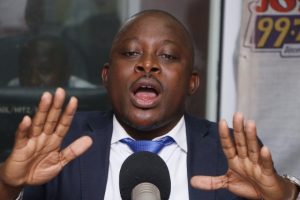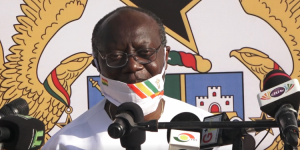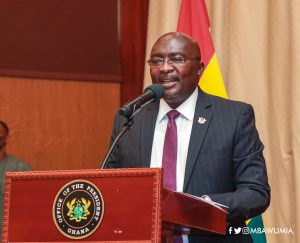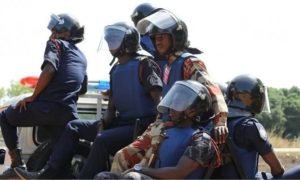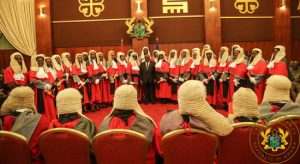The Member of Parliament (MP) for the Sissala West constituency, Mohammed Adams Sakparu, has bemoaned what he refers to as the exclusion of the Sissala West, Sissala East, and Wa West Districts from the European Union-funded feeder road projects in the Upper West Region.
The government of Ghana received a grant of €35 million from the European Union for the rehabilitation and maintenance of 670 km of feeder and farm access roads in the region.
The financial support is aimed at improving inter-connectivity between areas of production and marketplaces.
In a joint statement released by the Ministry of Roads and Highways and the European Union, the sector minister, Kwasi Amoako-Atta, said the support falls in line with the government’s vision to provide a better transportation system for farming communities.
The Sissala West legislator in a statement lamented the “deliberate exclusion of Sissala West, Sissala East and Wa East Districts from this noble project being undertaken by the government of Ghana and the European Union.”
He questioned the exclusion of the districts from the project, considering their agrarian nature.
“Considering the aim of the project, one would have thought that it would be fair to consider areas that are into massive agricultural production in the region. For instance, the Sissala enclaves that serve as a major food basket in the region and Ghana at large. It is further revealing to note that, Sissala West has been adjudged the best quality maize producer in 2019 at the National Farmer’s Day celebration in the country as well as the second-highest producer of maize with Sissala East in addition. It is also a fact that, the government flagship policy, Planting for Food and Jobs’ success story cannot be told without mentioning the contribution of the Sissala districts. In spite of all these contributions being made by the two districts in ensuring food security in the country, surprisingly their road network is the worst in the region and if possible in the country,” he bemoaned.
He said all efforts made by the people of Sissala to get these bad roads fixed have proven futile.
“Series of visits were made to the presidency to that effect. Some of these visits are as follows. First, the Chief and people of Walembelle Traditional area visited the presidency in 2018, followed by, the Chief and Elders of the Gwollu Traditional area, the hometown of the late former President Dr. Hillah Limann in 2019, the Paramount Chief of the Gandawi Traditional area and his Sub-Chiefs were the next in 2020 and finally all the Paramount Chiefs from the Sissala areas including Sissala West, Sissala East, Lambusie, and Funsi in May 2021 also paid a visit to the presidency to ensure that the bad roads are fixed. All these visits were meant to passionately appeal to government to fix the bad road network in the Sissala area. That notwithstanding, the Sissala Youth Forum also waded into this call and even demonstrated against the bad roads and called on government to fix them.”
“Based on these efforts made by the people, is it not proper that, if there is even a kilometre of road to be worked on in the region, it should go to the Sissala land without any prejudice. I am tempted to think that this whole attempt was well-orchestrated to marginalize and deprive the Sissala people from their share of the national cake. How can a project of this nature intended to improve farm access roads dubiously and greedily exclude Sissala areas that are predominantly agrarian areas?” he queried.
Mr. Sakpura further indicated that the Sissala area was neglected on the government’s year of roads project declared in 2019.
He called on the key stakeholders of the project to immediately consider the Sissala districts in this all-important road initiative.
“For the sake of fairness and equity, I demand immediate answers to the following questions from these individuals: The Regional Minister for Upper West, Hafiz Bin Salih, the Roads and Highways Minister, Mr. Amoako-Atta, the EU Ambassador to Ghana, The World Bank representative, the Department of Feeder Roads in Upper West and Chief Director of Feeder Roads in Accra.”
“I appreciate the effort of Ghana government, the European Union and World Bank for bringing such a laudable project to the region in an attempt to improve farm access road network in the region to ensure sustainable agriculture. However, on behalf of the people of the Sissala Districts, I want to express my utmost disdain on the way and manner this project were selfishly and wickedly shared without considering the Sissala districts mostly known as the leading food hub in the region are not considered. I am using this opportunity to call on all the key stakeholders of this project to immediately consider the districts in all its projects.”
“If this persuasion failed, the Sissala people would have no option than to hit the streets to register their displeasure against this shared greed and gross discrimination,” he warned.
Additional information about the grant
The grant comes under the larger EUR €160 million European Union-Ghana Agricultural Programme (EU-GAP) to develop sustainable agriculture in the Upper West Region.
The roads are organized in three packages, as follows:
1. Wa Municipal, Wa West, Nadowli-Kaleo (235 km)
2. Jirapa, Lawra, Daffiama-Bussie (210 km)
3. Nandom and Lambussie-Karni (225 km)
This intervention aims at improving inter-connectivity between areas of production and marketplaces in the Upper West Region.
The objective is to reduce the travel time on these sections of roads, promote road safety, and strengthen at the same time the institutional management of the transport sector.
The feeder roads are commissioned under Output and Performance-Based Road Contracts (OPBRC) managed by the Department of Feeder Roads under the Ministry of Roads and Highways.
To maximize the support intervention, the EU funding is administered under a Trust Fund administered by the World Bank as part of the Transport Sector Improvement Project’ (TSIP), which finances a larger national transport programme.



